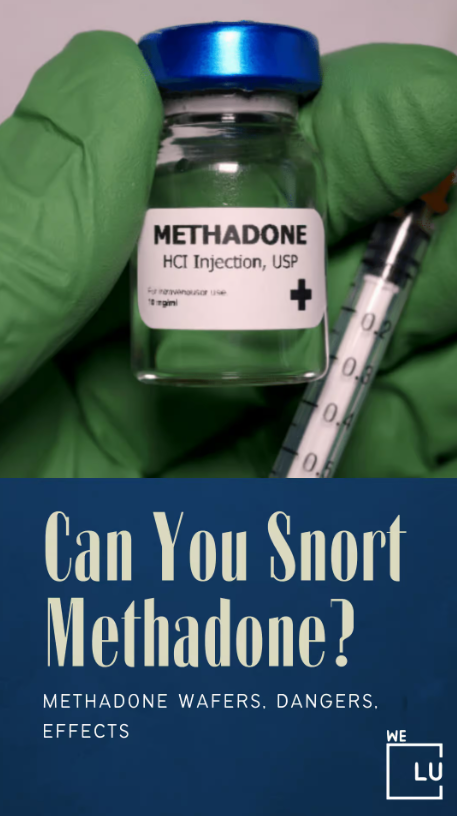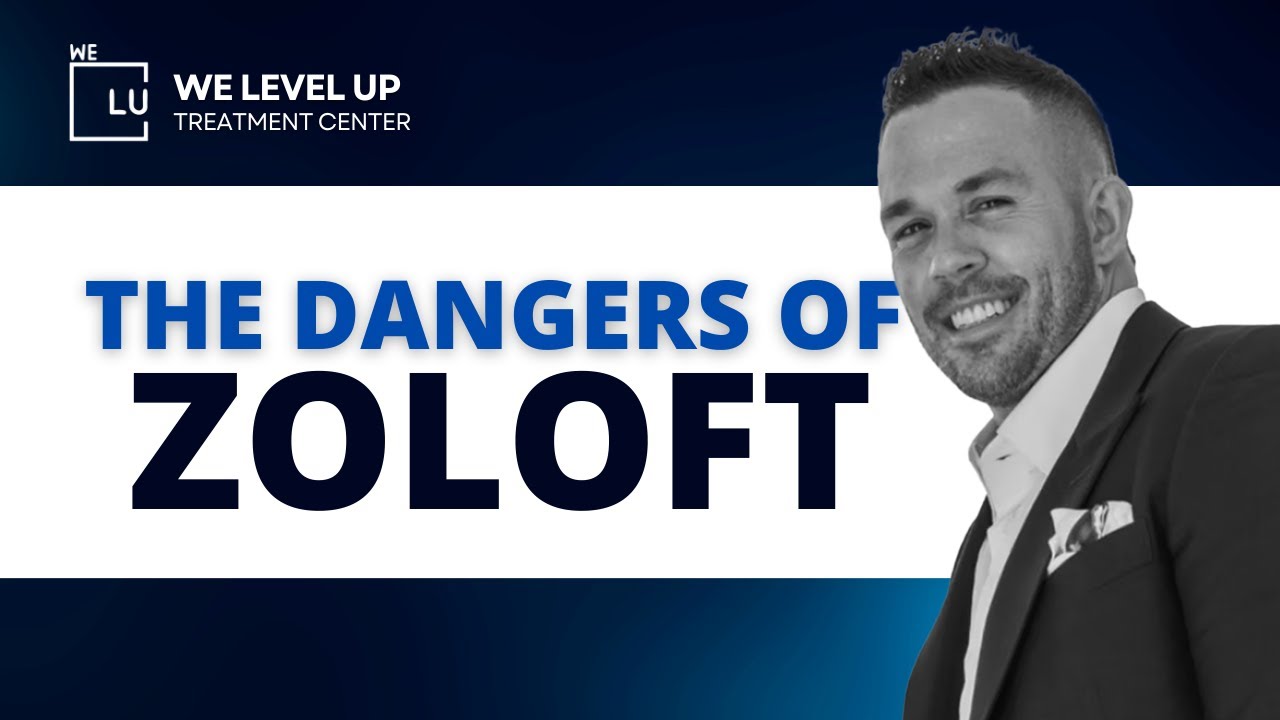Methadone, a synthetic opioid agonist often used in medication-assisted treatment, helps manage withdrawal and cravings from other opioids. So, is methadone addictive?
Being an opioid, it also carries addiction risk, even with its effectiveness. While its delayed start and lasting impact make it a good maintenance option, careful monitoring and following prescribed doses are crucial to reduce the risk of addiction. Maximizing the advantages of methadone in addiction treatment requires close medical monitoring and adherence to prescribed doses due to the delicate balance between therapeutic usage and dependency risk.
Reducing your dosage gradually or tapering with the help of a detox center is the safest method of quitting methadone. Get facts about methadone detox at We Level Up Texas treatment center. Make this your opportunity to reclaim your life. Call We Level Up TX 24/7 for a free consultation. Every call is free and confidential.
Methadone Facts
Synthetic opioid methadone, which is given for moderate to severe pain, is frequently used to treat opiate addictions, especially heroin-related ones. It stabilizes patients and lessens the symptoms of addiction withdrawal by acting on the same opioid receptors as morphine and heroin.
Classified as a Schedule II drug at the federal level, methadone is acknowledged for its legitimate medical applications but is also reported for the potential development of dependence among users. The scheduling highlights its controlled status, emphasizing the illegal nature of using methadone for recreational purposes, as abuse may result in profound mental impairment and physical dependence.
Notable examples of other Schedule II drugs include oxycodone and fentanyl.
Methadone Side Effects
The adverse effects of methadone are comparable to those of other opioid medications. The symptoms include:
- Nausea.
- Constipation.
- Drowsiness.
- Sweating.
- Weight gain.
- Dry mouth.
- Mood swings.
- Difficulty sleeping.
- Hypotension.
- Respiratory issues.
- Vision problems.
- Hallucinations.
- Confusion.
Seizures and a faster heart rate are severe effects of methadone that require immediate attention. Those on methadone therapy should be closely watched to reduce risks and deal with these potentially life-threatening reactions promptly.
Can You Overdose On Methadone?
Overdosing on methadone is possible, just as with other potent narcotic. Throughout your therapy, you need to be aware of the warning indications of an overdose. Early detection enables prompt action to prevent possible problems.
Methadone Overdose Symptoms
- Shallow breathing.
- Extreme drowsiness.
- Confusion.
- Weakness.
- Dizziness.
- Constricted pupils.
- Loss of consciousness.
- Cold, clammy skin.
- Bluish tint to lips and nails.
- Coma.
It’s critical to contact 911 right away. In situations of methadone overdose, emergency personnel are prepared to offer prompt and effective interventions, guaranteeing the best possible result.
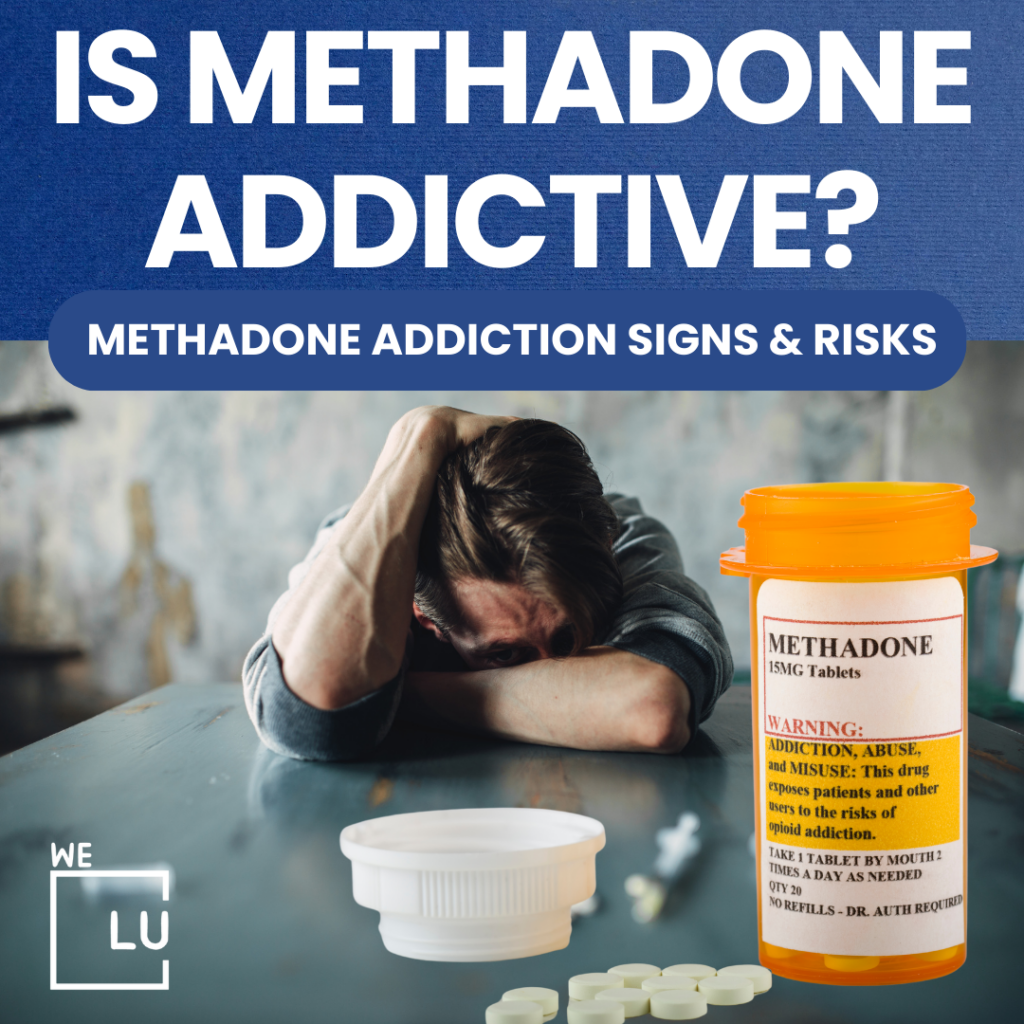
Skip To:
Learn More:
- Methadone Detox and Timeline. Methadone Withdrawal Treatment.
- How Long Does Methadone Stay in Your System?
- What is Methadone Used for?
- Methadone Withdrawal Symptoms
- Methadone Side Effects
- Suboxone Detox, Timeline, and Safe Withdrawal Management
- Opioid Withdrawal Symptoms
- Opioid Withdrawal Timeline
- Opioid Overdose Symptoms
- Guide to Opioid Detox
- Opioid Addiction
- Guide to Opiate Withdrawal
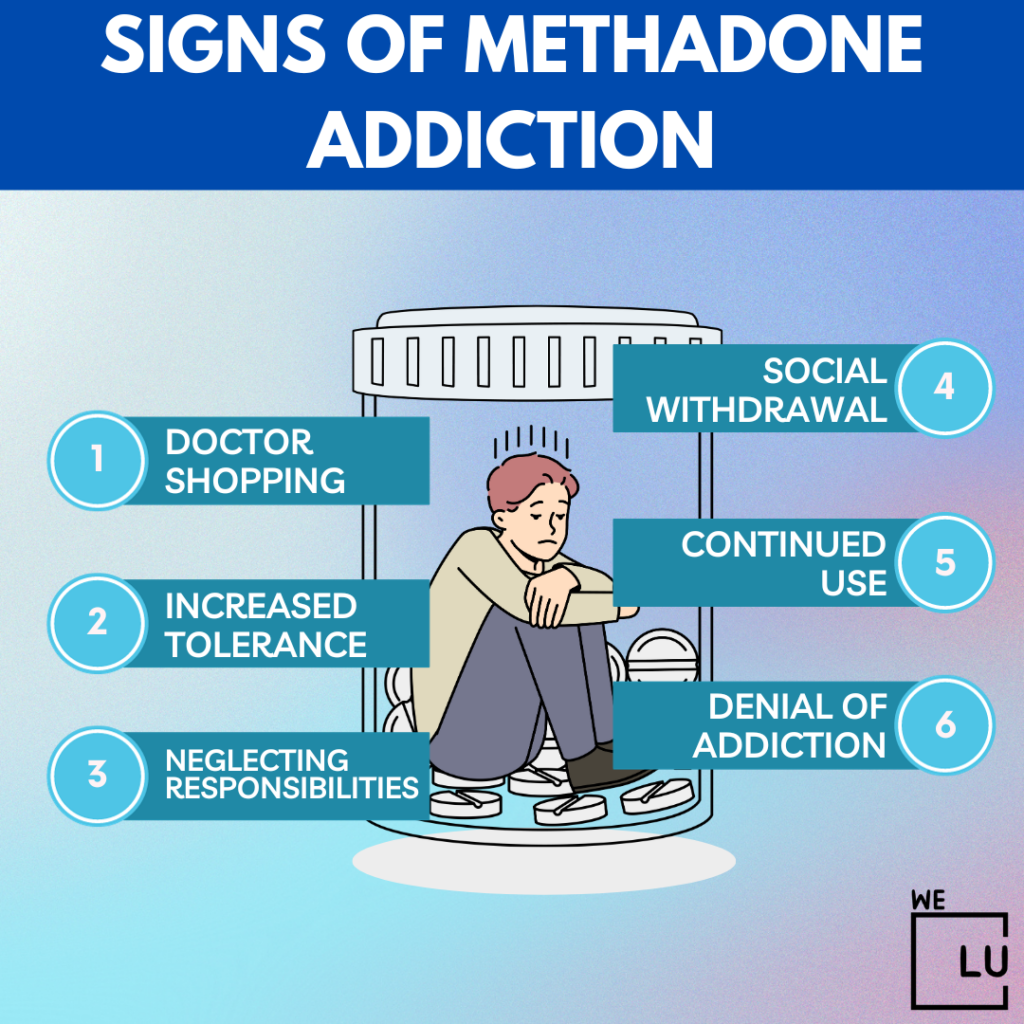
Is Methadone Addictive?
Since many in the medical field view methadone as a vital tool for heroin users’ recovery, methadone addiction is somewhat of a taboo subject. Addiction, however, is an all too prevalent adverse effect of opiates. The fact that methadone relieves pain might lead to an addiction to the substance. As the use goes on, more medication is required to provide the same result as tolerance increases.
Methadone Addiction Rate and Statistics
Methadone is frequently recommended in the US to treat the opioid addiction epidemic and save lives. Regretfully, it has also been connected to overdose deaths.
- In 2020, there were 311,531 clients receiving methadone under substance use disorder treatment facilities.
- Patients on methadone had 33% fewer opioid-positive drug tests and were 4.44 times more likely to stay in treatment compared to other controlling addiction management.
- Methadone is involved in 1/3 of opiate-related overdose deaths.
Signs of Methadone Addiction to Watch Out for
It’s critical to be aware of signs indicating methadone addiction for early intervention and support. By recognizing these indicators, individuals undergoing medication-assisted treatment can take proactive steps toward recovery and better health.
The signs and symptoms of methadone addiction include:
- Doctor shopping for multiple prescriptions.
- Increased tolerance, requiring higher doses for the same effect.
- Compulsive drug-seeking behavior.
- Neglecting responsibilities due to methadone use.
- Continued use despite negative consequences.
- Social withdrawal and isolation.
- Changes in mood or behavior.
- Physical symptoms like drowsiness or constricted pupils.
- Financial struggles due to spending on methadone.
- Denial of addiction when confronted.
Many people face addiction to prescription pain medications, often opioids like oxycodone or hydrocodone (found in drugs like Vicodin, Percocet, or OxyContin). While lawmakers recognize overprescription, methadone, a cheaper alternative, saw over 4 million prescriptions in 2009, sometimes favored by insurance companies. [1] However, its long-acting nature can lead to a quick buildup in the body, risking overdose even with a slightly increased dose. Despite its value in treating withdrawal symptoms during addiction recovery, methadone may pose risks when used as a painkiller, especially for chronic conditions with pain outlasting its effectiveness.
If you’re struggling with methadone dependency, get treatment counseling that works. Discover professional help from We Level Up Texas’ addiction and mental health therapists. Start getting support with a free call to our addiction hotline.
Get Help. Get Better. Get Your Life Back.
Searching for Accredited Drug and Alcohol Rehab Centers Near You? We Level Up Texas Is Opening Soon!
Even if you have failed previously and relapsed, or are in the middle of a difficult crisis, we stand ready to support you. Our trusted behavioral health specialists will not give up on you. When you feel ready or just want someone to speak to about therapy alternatives to change your life call us. Even if we cannot assist you, we will lead you to wherever you can get support. There is no obligation. Call our network hotline today.
FREE Addiction Hotline – Call 24/7Methadone Withdrawal Symptoms
Methadone, initially designed for heroin addiction and now used for different opioid use disorders, causes less severe and slower-onset withdrawal symptoms compared to other opiates.
Taking one to three days to leave the body, methadone withdrawal is milder but shares similarities with other opioids. This distinguishes methadone as a treatment with a more gradual and manageable withdrawal process for those dealing with opioid dependency.
Symptoms of methadone withdrawal include:
- Nausea.
- Vomiting.
- Diarrhea.
- Muscle aches.
- Restlessness.
- Anxiety.
- Runny nose.
- Sweating.
- Chills.
How Long Does Methadone Withdrawal Last? Timeline Chart
| Time Frame | Methadone Withdrawal Symptoms |
|---|---|
| 24-36 hours | Onset of symptoms, including anxiety and restlessness |
| 3-7 days | Peak intensity with nausea, vomiting, diarrhea, muscle aches, and sweating |
| 1-2 weeks | A gradual reduction in the intensity of symptoms |
| 2-3 weeks | Lingering symptoms like insomnia, anxiety, and cravings |
| Beyond 3 weeks | Gradual reduction in the intensity of symptoms |
To manage methadone withdrawal, work with your healthcare provider to gradually reduce the dosage. Supportive therapies, staying hydrated, and a healthy lifestyle are also essential. Rest, self-care, regular exercise, and mindfulness practices can be helpful.
After detoxing methadone, follow up with aftercare programs for continued success in a substance-free life.
Methadone Warnings
Follow the prescribed dosage carefully to avoid severe consequences like overdose. Inform medical providers about other prescriptions, supplements, or medications to prevent drug interactions.
Take caution if you have previously had respiratory problems since methadone may make breathing more difficult. Individuals who are breastfeeding or pregnant should see a healthcare practitioner due to the potential consequences for the fetus. A safe and customized strategy depends on you being honest about your medical history, current health issues, and anxiety. If a doctor’s supervision is required, reducing the dosage of methadone gradually can help avoid withdrawal symptoms. You could have an allergic response if symptoms like a rash or difficulty breathing appear. If so, get medical help right once.
Methadone Interactions with Other Drugs
Harmful interactions between other medications and methadone may occur, impacting both effects. Respiratory depression is more typical with this medication when used with alcohol, other opioids, or benzodiazepines.
Interactions between methadone and some medicines, including the following, can also impact methadone metabolism and effectiveness:
- Antibiotics.
- Antidepressants.
- Antifungal medications.
- Antiviral medications.
- Anticonvulsants.
- Muscle relaxants.
- Cimetidine.
- St. John’s Wort.
By monitoring and lowering the risks associated with these interactions, keeping constant touch with medical professionals promotes safe and effective methadone therapy.
If you’re seeking assistance with your rehab journey, reach out to a We Level Up Texas treatment professional today—your call is free and confidential.
Opening Soon! First-Class Facilities & Amenities
World-Class High-Quality Addiction & Mental Health Rehabilitation Treatment
Coming Soon! Rehab Centers TourRenowned Addiction Centers. Serene Private Facilities. Inpatient Rehab Programs Vary.
FREE Addiction Hotline – Call 24/7Proven recovery success experience, backed by a Team with History of:
15+
Years of Unified Experience
100s
5-Star Reviews Across Our Centers
10K
Recovery Success Stories Across Our Network
- Low Patient to Therapist Ratio
- Onsite Medical Detox Center
- Comprehensive Dual-Diagnosis Treatment
- Complimentary Family & Alumni Programs
- Coaching, Recovery & Personal Development Events
Treatment Options for Methadone Addiction
A thorough strategy is usually taken while treating methadone addiction. Medication-assisted treatment (MAT) is a popular approach in which stopping methadone gradually under strict medical supervision is one possible step in the process. A different approach to treating the addiction is switching to other drugs, such as buprenorphine. The aim is to encourage people to recover by offering a personalized, closely watched treatment plan.
The first drug that the FDA approved to treat opioid addictions more flexibly was buprenorphine, a semisynthetic narcotic. Buprenorphine prescriptions can be filled for take-home dosages, but methadone is strictly controlled and requires patients to visit clinics for their daily dosing. This prescription drug is regarded to have less abuse potential than methadone, notwithstanding the possibility of abuse or addiction.
Positive behavioral adjustments are encouraged, and underlying difficulties are addressed by behavioral treatments, including contingency management and cognitive-behavioral therapy (CBT). Counseling and support groups are also essential to create a strong support network.
Tailored treatment plans, regular medical monitoring, and aftercare support contribute to successful methadone addiction recovery. Seeking professional guidance is essential to determine the most suitable treatment approach based on individual needs and circumstances.
Managing Drug Addiction Without Using Methadone
Instead of depending only on drugs such as methadone, treating drug addiction requires a more comprehensive strategy. This entails taking into account several facets of both physical and mental health. Counseling and behavioral treatment become crucial in helping people comprehend and modify their drug-related behaviors and activities.
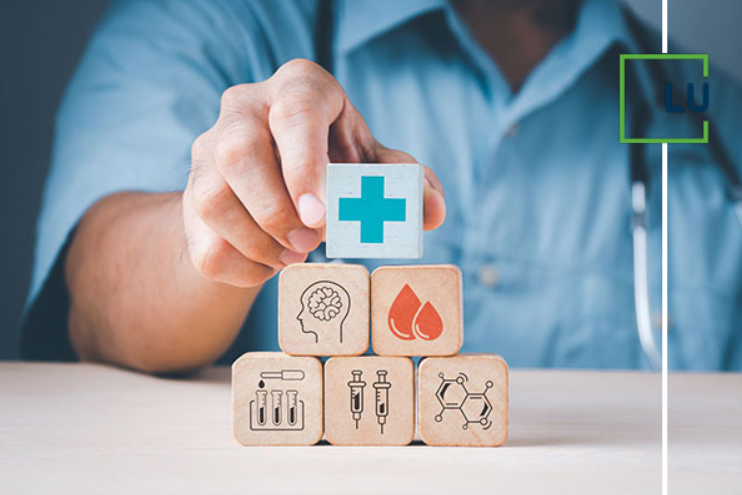
Methadone Inpatient Rehab
Because of the many ways that inpatient therapy helps to create a more regulated and encouraging atmosphere, it is highly advised for methadone addiction. Relapse during the early phases of rehabilitation is less likely in the controlled setting because it limits external stimuli and distractions.
Further guaranteeing a secure and efficient detoxification procedure and handling any difficulties or withdrawal symptoms is the availability of medical monitoring around the clock.
Methadone can be tapered slowly and under medical supervision in an organized inpatient environment, which makes the withdrawal process more accessible to handle and more gradual. To provide people with a greater degree of care and support while they navigate the difficulties of eliminating methadone dependency and building a foundation for sustained recovery, this all-encompassing approach takes into account both the medical and psychological elements of methadone addiction.
Treating Methadone Abuse with Co-occurring Disorders
Alongside co-occurring disorders, including depression, PTSD, schizophrenia, bipolar disorder, or other health problems, many people battling methadone addictions also fight with other mental health conditions. As they work to overcome other opioid addictions, people with mental health issues may occasionally try to self-manage their symptoms by abusing drugs or alcohol, cocaine, marijuana, or opioids. This might result in methadone addiction.
The goal of comprehensive care that tackles co-occurring illnesses and addiction to facilitate proper recovery from methadone addiction is achieved by psychiatrists and other medical experts focusing on identifying underlying mental health concerns in patients undergoing addiction treatment.
We Level Up Texas Methadone Addiction Treatment
Methadone addiction is challenging to overcome, just like with any other opioid use disorder. Withdrawal symptoms from methadone can be difficult to manage on your own, even if the substance isn’t as highly addictive as heroin. Thankfully, there exist treatment facilities where individuals may receive assistance in tapering down and permanently conquering their addiction. Reach out to We Level Up Texas today if you or someone you know is addicted to methadone or any other substance for additional information on how to get support.
Programs offered at We Level Up Texas inpatient rehab for methadone addiction include:
- Methadone Detoxification Services.
- Dual Diagnosis Treatment.
- Individual Counseling.
- Group Therapy.
- Medical Supervision.
- Educational Workshops.
- Holistic and Evidence-Based Therapies.
- Aftercare Planning.
Are you seeking methadone rehabs near me? Get a free rehab insurance check without any obligation. The result can help you explore several treatment options.

How Long Do Opiates Stay in Your System (Urine, Blood, Hair, and Saliva) | Informative Video
Start a New Life
Begin with a free call to an addiction & behavioral health treatment advisor. Learn more about our dual-diagnosis programs. The We Level Up treatment center network delivers recovery programs that vary by each treatment facility. Call to learn more.
- Personalized Care
- Caring Accountable Staff
- World-class Amenities
- Licensed & Accredited
- Renowned w/ 100s 5-Star Reviews
We’ll Call You
Search We Level Up Texas Is Methadone Addictive? Addiction Treatment Topics and Resources
Sources
- Clinical Guidelines for Withdrawal Management and Treatment of Drug Dependence in Closed Settings. Geneva: World Health Organization; 2009. 6, Methadone maintenance treatment. Available from: https://www.ncbi.nlm.nih.gov/books/NBK310658/
- Why is methadone used for drug addicts? Durrani M, Bansal K. Methadone. [Updated 2023 Apr 29]. In: StatPearls [Internet]. Treasure Island (FL): StatPearls Publishing; 2023 Jan-. Available from: https://www.ncbi.nlm.nih.gov/books/NBK562216/
- Anderson IB, Kearney TE. Use of methadone. West J Med. 2000 Jan;172(1):43-6. Doi: 10.1136/ewjm.172.1.43. PMID: 10695444; PMCID: PMC1070723. https://www.ncbi.nlm.nih.gov/pmc/articles/PMC1070723/ Related study to, Is methadone an addiction? Can you get addicted to methadone? How long do addicts stay on methadone?
- Parvaresh N, Masoudi A, Majidi-Tabrizi S, Mazhari S. The Correlation between Methadone Dosage and Comorbid Psychiatric Disorders in Patients on Methadone Maintenance Treatment. Addict Health. 2012 Winter-Spring;4(1-2):1-8. PMID: 24494130; PMCID: PMC3905553. https://www.ncbi.nlm.nih.gov/pmc/articles/PMC3905553/
- What is Methadone? – Substance Abuse and Mental Health Services Administration (SAMHSA) https://www.samhsa.gov/medications-substance-use-disorders/medications-counseling-related-conditions/methadone
- Methadone Take-Home Flexibilities Extension Guidance – Substance Abuse and Mental Health Services Administration (SAMHSA) https://www.samhsa.gov/medications-substance-use-disorders/statutes-regulations-guidelines/methadone-guidance
- Institute of Medicine (US) Committee on Federal Regulation of Methadone Treatment; Rettig RA, Yarmolinsky A, editors. Federal Regulation of Methadone Treatment. Washington (DC): National Academies Press (US); 1995. Executive Summary. Available from: https://www.ncbi.nlm.nih.gov/books/NBK232111/
- Methadone: MedlinePlus Drug Information – MedlinePlus (.gov) https://medlineplus.gov/druginfo/meds/a682134.html
- Medications for Opioid Use Disorder Study (MOUD Study) – Centers for Disease Control and Prevention (CDC) https://www.cdc.gov/opioids/framework/surveillance-research/moud-study.html
- Information about Medication-Assisted Treatment (MAT) – Food and Drug Administration (FDA) https://www.fda.gov/drugs/information-drug-class/information-about-medication-assisted-treatment-mat
- Center for Substance Abuse Treatment. A Guide to Substance Abuse Services for Primary Care Clinicians. Rockville (MD): Substance Abuse and Mental Health Services Administration (US); 1997. (Treatment Improvement Protocol (TIP) Series, No. 24.) Chapter 5—Specialized Substance Abuse Treatment Programs. Available from: https://www.ncbi.nlm.nih.gov/books/NBK64815/
- Institute of Medicine (US) Committee on Opportunities in Drug Abuse Research. Pathways of Addiction: Opportunities in Drug Abuse Research. Washington (DC): National Academies Press (US); 1996. 8, Treatment. Available from: https://www.ncbi.nlm.nih.gov/books/NBK232966/
